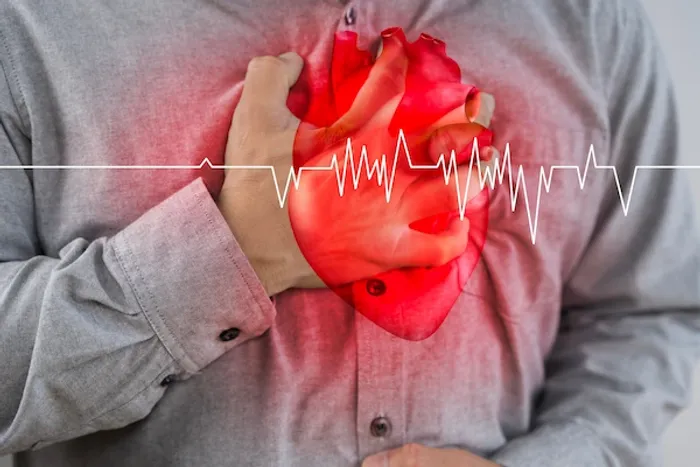Checking Your Pulse Points Balance
Discover how checking your pulse points can offer insights into your body's balance and overall well-being. Learn to monitor your rhythm for health awareness.

Written by Dr. J T Hema Pratima
Reviewed by Dr. Rohinipriyanka Pondugula MBBS
Last updated on 13th Jan, 2026

Introduction
A pulse is more than just a heartbeat—it’s a vital sign that reflects your overall health. Checking your pulse points can help you monitor your heart rate, circulation, and even detect potential health issues early. In this article, we’ll explain what pulse points are, how to check them, and why keeping them balanced is important for your wellbeing.
What Are Pulse Points?
Pulse points are areas on your body where arteries are close to the skin, making it easy to feel your heartbeat. These points help doctors and even you at home assess your heart rate and rhythm.
Common Pulse Points in the Body
Common pulse points in the body include:
1. Wrist (Radial Pulse) – Located on the inside of your wrist, below the thumb.
2. Neck (Carotid Pulse) – Found on either side of your windpipe.
3. Temple (Temporal Pulse) – On the side of your forehead.
4. Groin (Femoral Pulse) – In the crease between your upper thigh and pelvis.
5. Behind the Knee (Popliteal Pulse) – At the back of the knee.
6. Top of the Foot (Dorsalis Pedis Pulse) – On the upper side of the foot.
7. Ankle (Posterior Tibial Pulse) – Behind the inner ankle bone.
Consult Top Specialists for Personalised Tips
Why Should You Check Your Pulse?
Monitoring your pulse can help:
Detects irregular heartbeats (arrhythmias).
Track fitness levels during exercise.
Identify circulation problems.
Monitor stress or anxiety effects on the heart.
How to Check Your Pulse?
Step by Step Guide
1. Choose a Pulse Point – The wrist (radial pulse) is easiest for selfchecking.
2. Use Your Fingers – Place your index and middle fingers lightly over the pulse point.
3. Count the Beats – Use a timer to count beats for 30 seconds, then multiply by 2 for beats per minute (BPM).
4. Check Rhythm – Notice if the beats are steady or irregular.
Normal Resting Heart Rate:
Adults: 60–100 BPM
Athletes: 40–60 BPM (due to better cardiovascular fitness)
What Does an Unbalanced Pulse Mean?
If your pulse is too fast (tachycardia – over 100 BPM) or too slow (bradycardia – under 60 BPM), it could indicate:
Dehydration or stress
Heart disease
Thyroid issues
Anemia or low blood pressure
An irregular pulse (skipping beats) may signal atrial fibrillation (AFib), a condition requiring medical attention.
Tips for Maintaining a Healthy Pulse
Tips for maintaining a healthy pulse are:
1. Stay Hydrated
Dehydration can increase heart rate. Drink enough water daily.
2. Exercise Regularly
Moderate exercise (walking, swimming) strengthens the heart and regulates pulse.
3. Manage Stress
Deep breathing, meditation, and yoga help lower a rapid pulse caused by anxiety.
4. Avoid Excess Caffeine & Alcohol
These can spike heart rate in some people.
5. Eat Heart Healthy Foods
Potassium-rich foods (bananas, spinach) help regulate heartbeat.
Omega-3 fatty acids (fish, flaxseeds) support heart health.
6. Get Enough Sleep
Poor sleep can disrupt heart rhythm. Aim for 7–9 hours nightly.
When to See a Doctor?
Consult a healthcare provider if you notice:
A consistently fast or slow pulse.
Irregular heartbeats (fluttering, skipped beats).
Dizziness, chest pain, or shortness of breath with pulse changes.
If needed, you can book a heart health checkup or ECG test through Apollo 24|7 for expert guidance.
Final Thoughts
Checking your pulse is a simple yet powerful way to monitor your heart health. By staying aware of your pulse points and maintaining a balanced lifestyle, you can take proactive steps toward better wellbeing. If you ever have concerns about your heart rate, don’t hesitate to seek medical advice.
Consult Top Physician
Consult Top Specialists for Personalised Tips

Dr. Rajib Ghose
General Physician/ Internal Medicine Specialist
25 Years • MBBS
East Midnapore
VIVEKANANDA SEBA SADAN, East Midnapore

Dr. Chethan T L
General Physician/ Internal Medicine Specialist
5 Years • MBBS, MD, DNB (General Medicine)
Bengaluru
Apollo Medical Center, Marathahalli, Bengaluru

Dr. Ajay K Sinha
General Physician/ Internal Medicine Specialist
30 Years • MD, Internal Medicine
Delhi
Apollo Hospitals Indraprastha, Delhi
(200+ Patients)

Dr. Hariprasath J
General Physician/ Internal Medicine Specialist
19 Years • MD (Gen Med), FCCP, Dip (Diabetology, UK)
Chennai
Apollo First Med Hospitals P H Road, Chennai
(225+ Patients)

Dr. Rohit Basu
General Practitioner
8 Years • MBBS, DNB (General surgery)
East Midnapore
VIVEKANANDA SEBA SADAN, East Midnapore
Consult Top Physician

Dr. Rajib Ghose
General Physician/ Internal Medicine Specialist
25 Years • MBBS
East Midnapore
VIVEKANANDA SEBA SADAN, East Midnapore

Dr. Chethan T L
General Physician/ Internal Medicine Specialist
5 Years • MBBS, MD, DNB (General Medicine)
Bengaluru
Apollo Medical Center, Marathahalli, Bengaluru

Dr. Ajay K Sinha
General Physician/ Internal Medicine Specialist
30 Years • MD, Internal Medicine
Delhi
Apollo Hospitals Indraprastha, Delhi
(200+ Patients)

Dr. Hariprasath J
General Physician/ Internal Medicine Specialist
19 Years • MD (Gen Med), FCCP, Dip (Diabetology, UK)
Chennai
Apollo First Med Hospitals P H Road, Chennai
(225+ Patients)

Dr. Rohit Basu
General Practitioner
8 Years • MBBS, DNB (General surgery)
East Midnapore
VIVEKANANDA SEBA SADAN, East Midnapore




